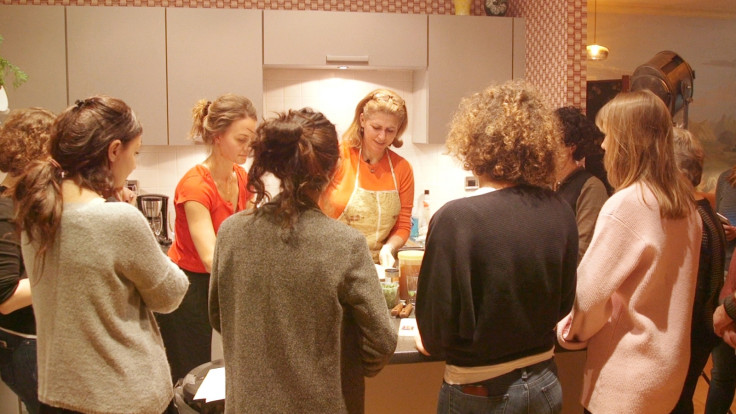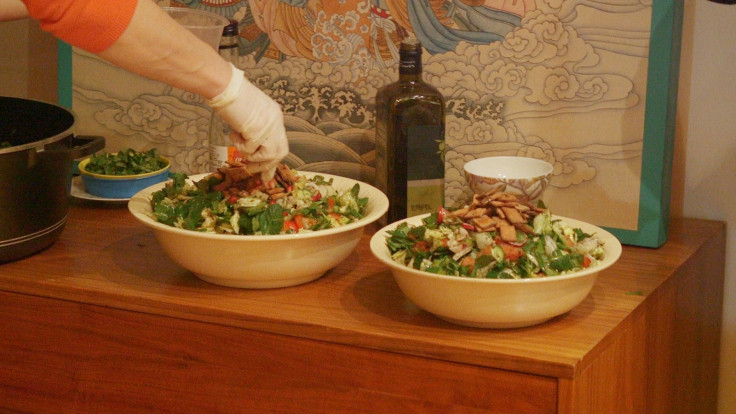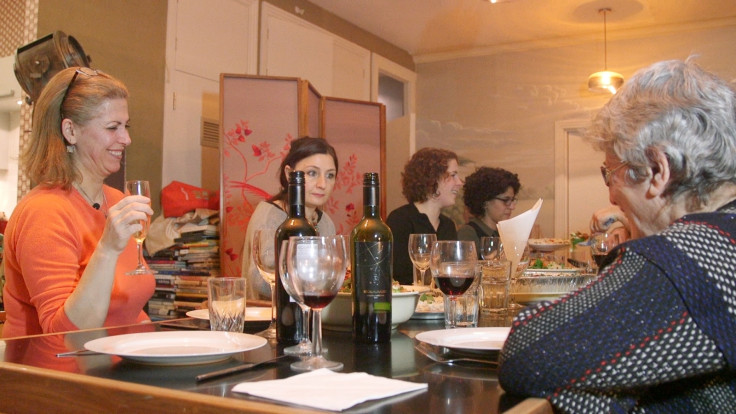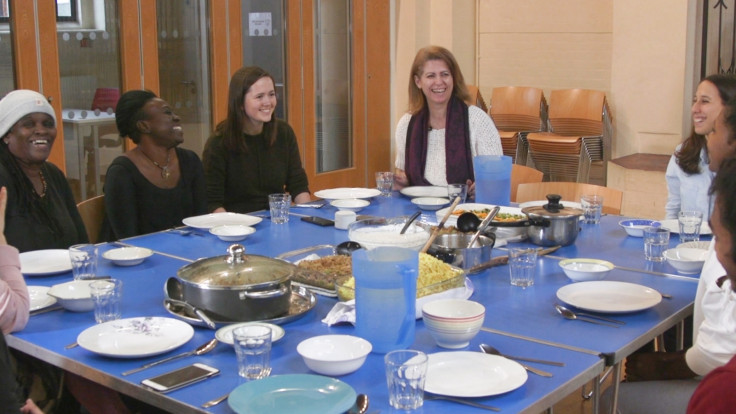Dinner party with a difference - Meet the refugee speaking the universal language of food
Migrateful is a social enterprise that trains refugees to teach cooking classes and learn English.
Crowded round a kitchen table in North London a group of strangers listen intently to chef Majeda Khouri proudly explain the diversity of food from her home country, Syria.
Between comparing Syrian food to a garden - rich with fruit and vegetables, she patiently answers her students' questions on how she managed to escape from her war-torn country.
Khouri is a refugee, having worked as a civil rights activist in Syria, life there became too dangerous. She was forced to leave her husband, children and job as a social worker.
"In Syria I didn't work as a chef but here food is a good way to communicate with people, to express your feeling through food, I find this is this is a good way to integrate," she tells IBTimesUK.
She is hosting a cookery class through the social enterprise Migrateful. The organisation trains asylum seekers, refugees and migrants to lead cookery classes, helping them practise their English language skills and enhance their integration.

But in fact Migrateful goes further than that, as founder Jess Thompson explains:
"This project is about really empowering them and saying actually you've got something amazing you can share with us."
Khouri takes the time to let her curious students know which Tahini paste is best to buy (apparently never in a glass jar), why it's important to chargrill your aubergines over a flame and not in the oven (for taste and colouring), and when she would eat these dishes if she were home.
She has only recently been granted her refugee status and has just started the process to be reunited with her sons, but this has been a period of eight months which she has had little control over.

"From the first day I got here and applied for asylum they said to me you don't look like a refugee. 'What does a refugee look like'?" she asked.
It's clear to see why these three hours of taking the lead, and sharing a talent and skill can help someone feel valued and empowered when other parts of their life lacks control.
Meanwhile the participants also benefit from more than just a three-course meal.
Those who take part in the lesson are politely inquisitive about Khouri's life, both past and present, allowing for stereotypes to be quickly quashed.
Her children are taught in English at school. Yes there are vegans in Syria and before eating, some people pray, and those who don't, take a moment to mediate and remain silent. "But you don't have to because I don't believe in that," she jokes.
As Khouri puts it "integration is two sides".

Thompson started Migrateful in June 2017 after spending time in refugee camps in Dunkirk and in the Spanish enclave in Morocco. She knew she wanted to do something back at home, and after a English lesson with refugees became a discussion about what they could give back, Migrateful was born.
You can go to a class at Rosie's in Peckham, south London or arrange a private class in your house with friends. The choice of cuisine varies from Syrian, Eritrean, Cuban, Pakistani and Iranian.
The chefs receive training once a week in a community centre in south London. Each week someone is responsible for teaching their cuisine and rehearsing how they would lead their class, practising their English at the same time.
Whilst Thompson speaks in Spanish to Cuban chef Lola (before politely encouraging her to speak in English) one of her volunteers is updating accounts amongst the plates and cutlery laid out for today's feast.
Dotted around the kitchen and food prepping areas, the chefs and a few volunteers are chatting away.
It is clear it's not just Migrateful's ability to empower its members that makes it so beneficial. This is a safe place where they can compare asylum applications and discuss any issues with each other. They champion each others victories and learn from each others' challenges.

When Khouri was granted her refugee status "it was a real big victory for the whole group", Thompson explained. She is well respected but despite being assertive she is compassionate in her approach to teaching.
Perhaps it is also because of the way she links cooking with motherhood. "Cooking is part of taking care of your children.
"Every time I cook for someone I just imagine I am with my children and my husband and they will eat from this dish and I feel sad sometimes and then I feel happy, maybe they will join me later and I will cook for them,"she enthuses, smiling warmly.
After the chefs training session, the group sits down to eat the prepared food under the watchful eyes of Khouri. She jokes: "The first time I met my husband I cooked for him and he fell in love with me."






















